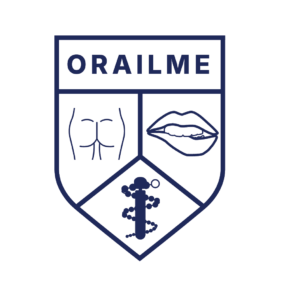Morris Dees delivered a speech Friday evening to a filled Strong Auditorium, bringing a message of acceptance and understanding in this post-September 11 time of tension America now faces.
His address, the 3rd annual commemorating Martin Luther King, Jr. Day at UR, was entitled “Responding to Hate: Voices of Hope and Tolerance.” It focused not only on the continuation of the ideals of the late Dr. Martin Luther King, Jr., but expressed his hopes for creating tolerance and justice in the present day.
“America is at a crossroads today. There is the path of those who judge by character and those who live by the legacy of white privilege. But I know [people] will become involved and make this nation the great nation I know it can be,” Dees said.
Dees, a civil rights attorney and co-founder of the non-profit Southern Poverty Law Center in Montgomery, Ala., has championed the rights of those unfairly abused through hate crimes, government agencies and any unconstitutional act.
Dees admits to the problems the United States is faced with today. “I feel an ill wind is blowing across our country. There are approximately 50,000 hate crimes across the country each year. [They] tear at the very fabric of this nation.”
He commented on the changing composition of the nation, with a growing number of minorities as well as hate groups, and their impact. “There’s a battle in our country today, of whose America is this,” he said.
However, Dees’ speech also highlighted the positive developments and expressed his thoughts for a stronger nation through tolerance and acceptance.
“When bridges are built across the divides in this country, they will be built with friendship, understanding, acceptance and love,” he said. “It is about accepting, understanding and appreciating those who are different than us.”
He spoke of Tom Metzger, a founder of the White Aryan Resistance with whom Dees spent a year in litigation for the murder of an Ethiopian immigrant.
Highlighting the great minority leaders of our country such as Jonas Salk and Colin Powell in his prosecution of Metzger, Dees spoke of his beliefs in diversity. “Our nation is great because of our diversity, not in spite of it,” he said.
He is also a proponent of organizations built to educate and promote the ideals of acceptance, and believes it is becoming a strong faction in countering hate groups. “We are forming organizations large and small all over this country to reach out to the victims of hate and teach respect and tolerance,” he said.
He praised King, expressing his respect for the struggles he faced, and his accomplishments for the nation. “He was one of America’s truly great heroes, a man who made us proud to be an American,” he said.
Dees spoke of King’s actions, and his convictions for a future of equality and tolerance for the U.S. “He made a vow to go before this nation and say that he believed in us,” he said. “I think Dr. King would still have faith in us today.”
Dees also noted the level we must rise to in terms of our behaviors, but expressed confidence in our ability to do so.
“Unless we make a place for everyone at America’s table, then we won’t have the things we have today to pass down to America’s future generations,” he said, then adding, “I feel sure we will rise to the challenge.”
Dees, as part of the Southern Poverty Law Center, has a tolerance education program called “Teaching Tolerance,” which distributes literature to 80,000 schools to promote these same ideals.
The program teaches children the importance of acceptance through knowledge. They also hold a “Mix it Up Day,” where children are encouraged to step outside their comfort zones, specifically at lunch in the cafeteria, to encourage growth in accepting differences in others. “[The tolerance program] begins to plant seeds for a just society,” he said.
When asked the effects of the program as a whole, he noted that education is subjective but feels his is one route to creating a better environment. “Ours is just one solution to the problem,” he said.At one point he highlighted the importance of tolerance existing in our neighborhoods and schools.
“Human rights begins close to home,” he said, quoting Eleanor Roosevelt.Students and faculty were impressed with Dees’ speech as a whole. “It was thought provoking,” freshman Enrico Castellucci said. “It makes me aware of things that are definitely present in our lives today.”
Junior Alexis Leslie also expressed approval. “I really enjoyed his speech,” she said. “It brought home to the students the issues, and he brought it to our level so we could understand.”
Dean of The College William Green was enthusiastic as well. “It was a fantastic presentation. It is the kind of inspiration that we need,” he said. “He is a unique and distinctive figure of our time. He lays out American ideals and shows how we can live up to them.”
Green also expressed his appreciation for the amount of student turnout, and the efforts of the Diversity Roundtable for these events.Dees struck a chord with the audience and left with words of hope.
“Think of the tremendous distance we have come,” he said. “We have had some great strides. I think it’s important that we don’t give up.”
Linden can be reached at klinden@campustimes.org.

